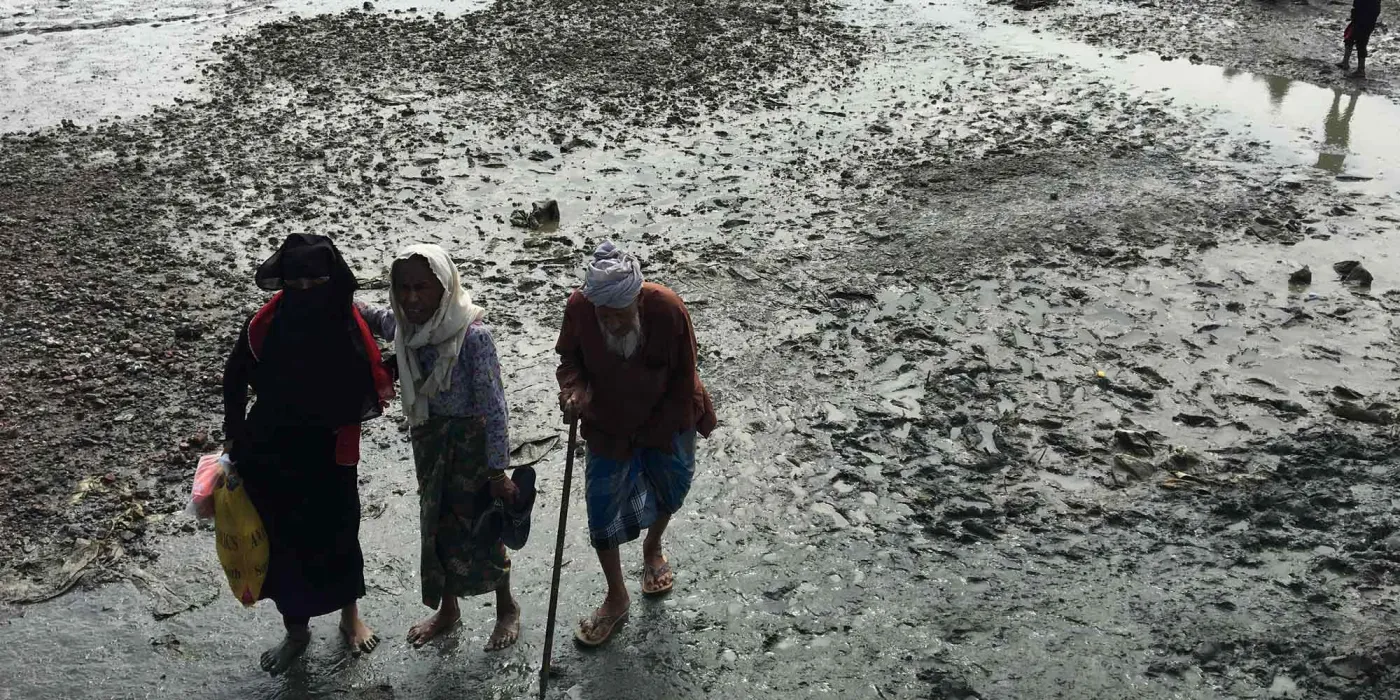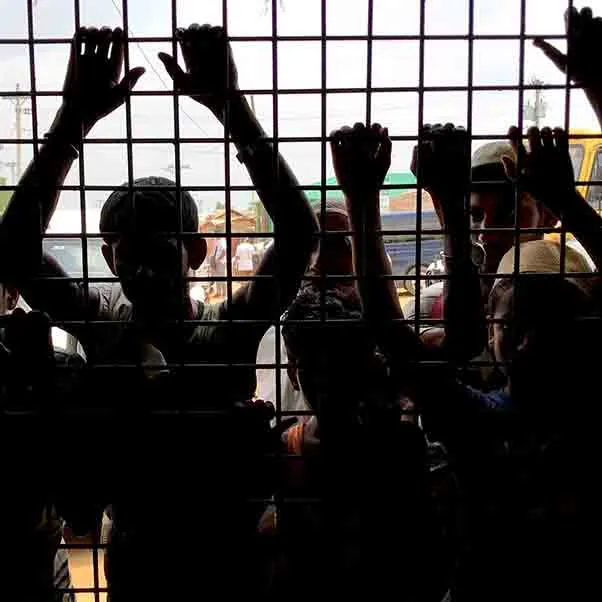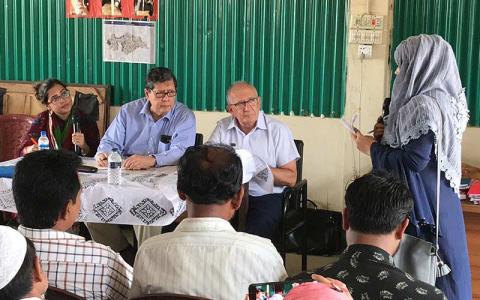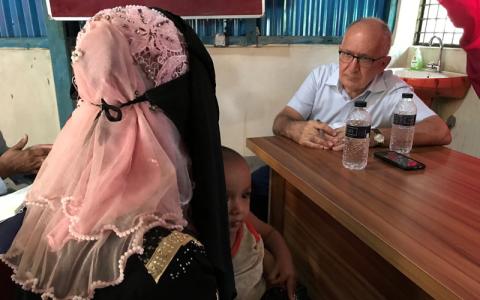
Relaying the Rohingya Message
The Experts’ September 2018 report documented the systematic violation of human rights of ethnic groups across the country, including in Kachin and Shan States. But the report focused heavily on military ‘clearance operations’ in Rakhine State that started in August 2017, during which Myanmar security forces killed thousands of Rohingya civilians, raped and sexually abused women and girls and set their homes ablaze. The violence forced more than 700,000 Rohingya from the country, most to Bangladesh.
During their meetings in Bangladesh’s Kutupalong camp, some of the refugees asked what would happen next.
Darusman, who leads the FFM, assured them the Independent Mechanism for Myanmar, which was established by the Human Rights Council last year, would inherit their work and begin preparing case files for potential prosecution of alleged perpetrators of some of the gravest crimes under international law.
Darusman also said he would relay their concerns to the Human Rights Council in Geneva when they present their final report in September.
After leaving Bangladesh, the Experts also met with representatives from Kachin, Shan and Chin communities in Malaysia.
“It is important to us to ensure we can also report back to other ethnic groups whose testimonies we reflected in our report to the Human Rights Council last year. The plight of the Kachin, Shan and Chin communities remains of serious concern to the FFM,” Expert member Radhika Coomarswamy said.
3 June 2019




